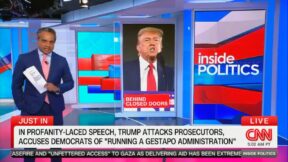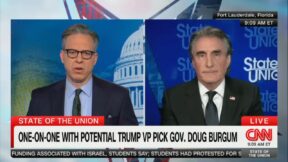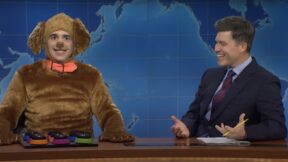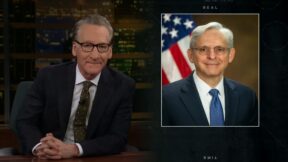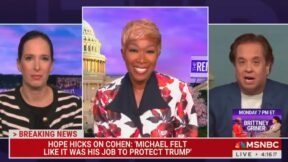Chief Justice Roberts Presses Trump Lawyer On Whether Total Immunity Should Cover a President Who Took a Bribe
Chief Justice John Roberts grilled former President Donald Trump’s attorney over his argument that presidential immunity could cover bribery.
During oral arguments at the Supreme Court on Thursday, the Republican nominee’s lawyer, John Sauer, claimed that a president could not be charged with bribery due to presidential immunity.
Trump’s legal counsel has argued for months that the former president cannot be charged with alleged crimes he committed while in office due to the statute. The immunity arguments paused Trump’s criminal trial in DC over his actions on January 6th, 2021.
Roberts pressed Sauer by asking if he was arguing a president could not be prosecuted for bribery because it “falls within the president’s official duties.”
ROBERTS: What if you have, let’s say the official act is appointing ambassadors and the president appoints a particular individual to a country. But it’s in exchange for a bribe. Somebody says, I’ll give you $1 million if I made the ambassador to whatever. How do you analyze that?
SAUER: That I think would fall under this court’s discussion in Brewster, where the court held, with respect to legislative acts, that bribery is not an official act, which also matches the court of common law background. So the way that this court in Brewster kind of sliced it, the joint was to say, accepting the bribe in the agreement to sex. The bribe are not official acts. That’s private conduct, okay. It’s not an appointment would not be would be an essentially an unrestricted power of this court that Congress couldn’t directly regulate.
ROBERTS: It’s accepting the bribe is in an official act. But appointing an ambassador is certainly within the official responsibilities of the president. So how could you how does your official acts or the official acts and border boundary, come into play when it’s going to be official? Assuming that the president is innocent, but the whole question is whether he’s going to be found innocent or guilty.SAUER: Again, I think Brewster and Johnson do address that, or very persuasively, at least in a slightly different context. Brewster and Johnson say the indictment has to be expunged of all the immune official acts. So there has to be determination. What’s official, what’s not officially.
ROBERTS: Expunge the official. You say, okay, we’re prosecuting you because you accepted $1 million. They’re supposed to say not say what it’s for, because the what’s for part is within the president’s official duties?
SAUER: There has to be, we would say, independent source of evidence for that. And keep in mind that this indictment charges what this court is described as unrestricted powers of the president. So the premise, the logical premise of this indictment is that Congress, by passing vague and general criminal statutes, has purported to directly regulate the president’s exercise of things like the exercise of the appointment and removal power. Things like his ability to speak directly to the American public core exercises of his authority under the recommendations clause, to recommend to Congress members of Congress the measures he thinks necessary and expedient. So you have a indictment in this case that goes right to the heartland of the president’s powers, that alleges a whole series of official acts and tries to tie them together by saying, well, there’s a private aim or a private purpose in that case. And that’s a situation which, of course, could be alleged in virtually any indictment.
Watch the clip above via MSNBC.
Have a tip we should know? tips@mediaite.com
